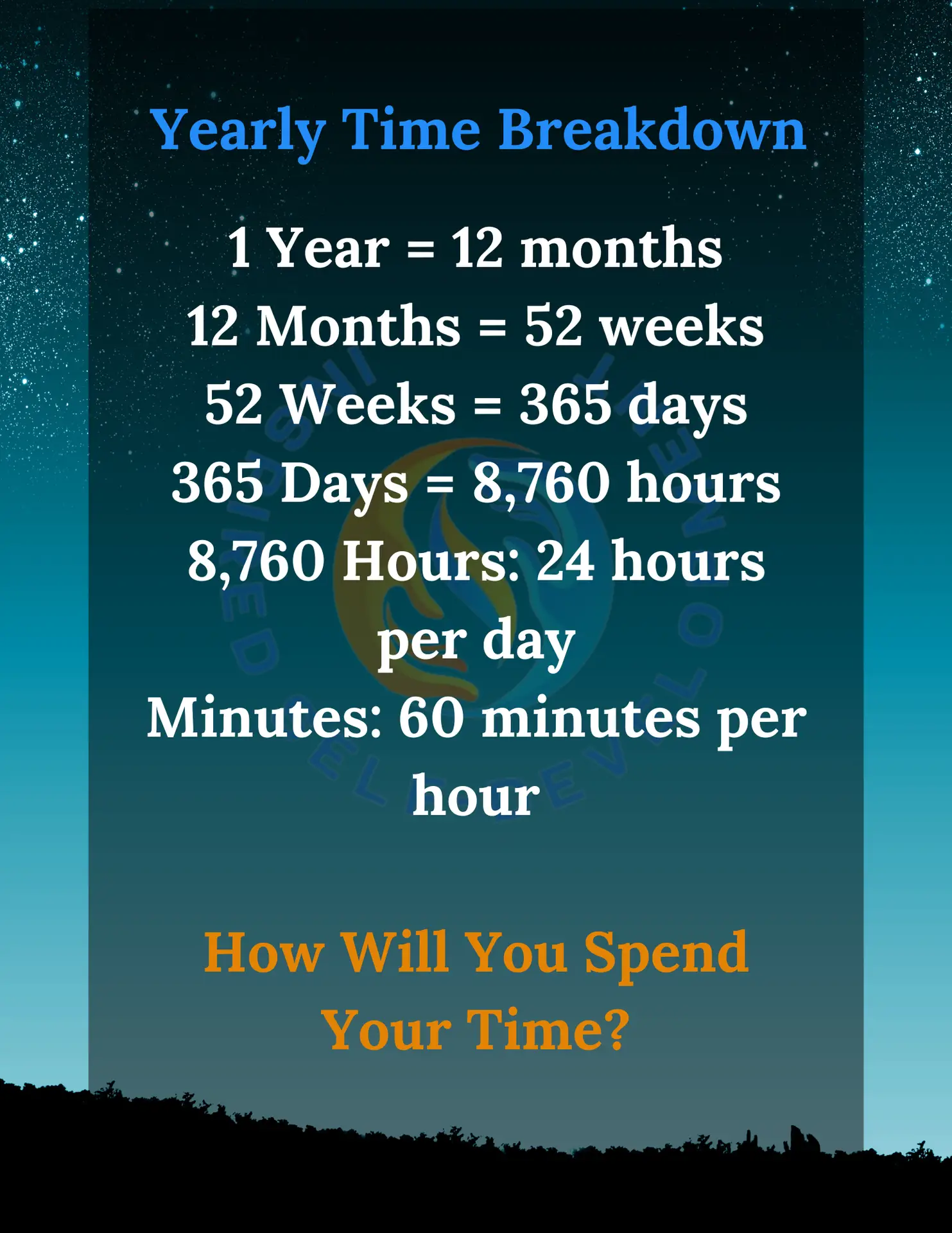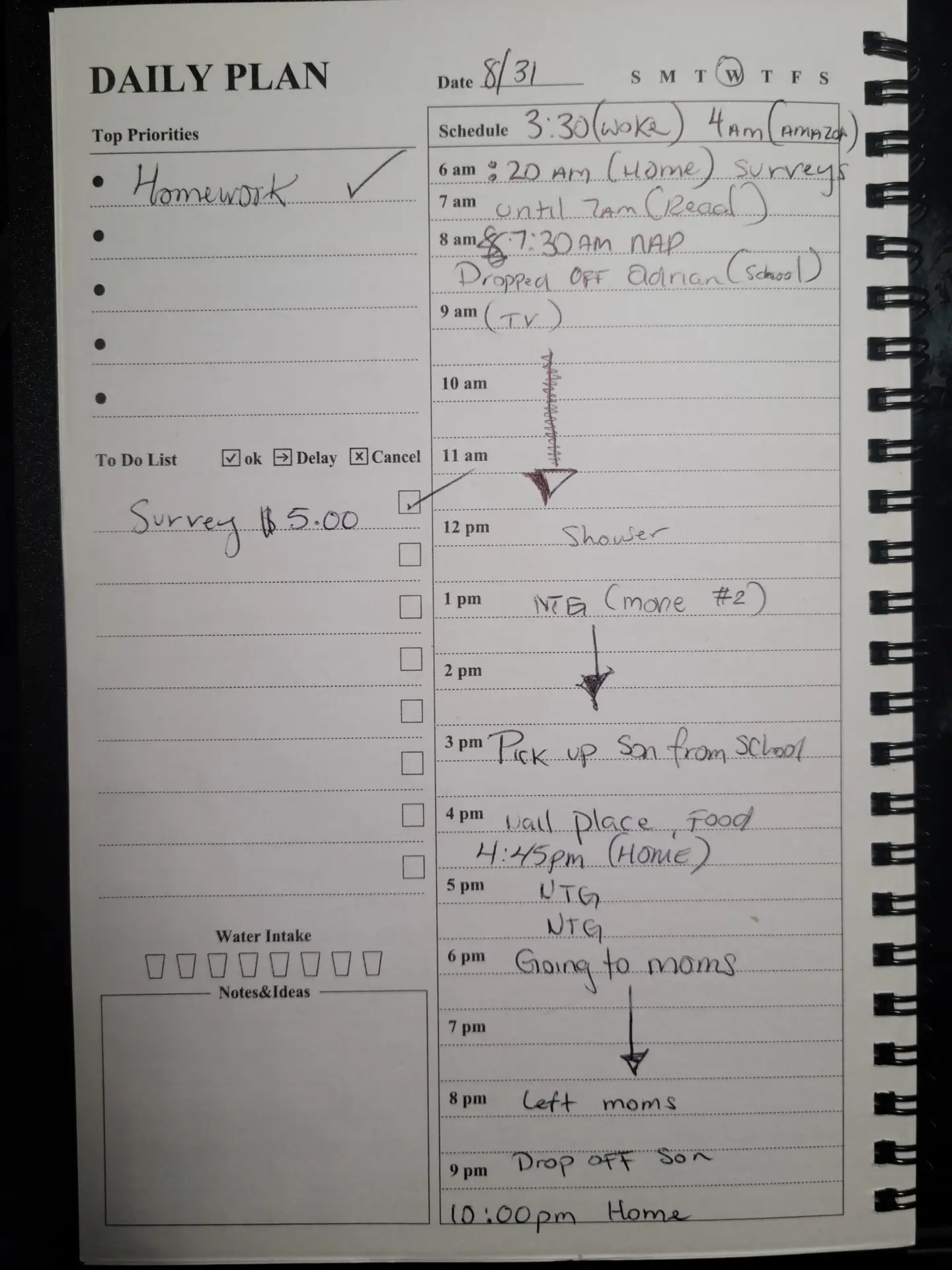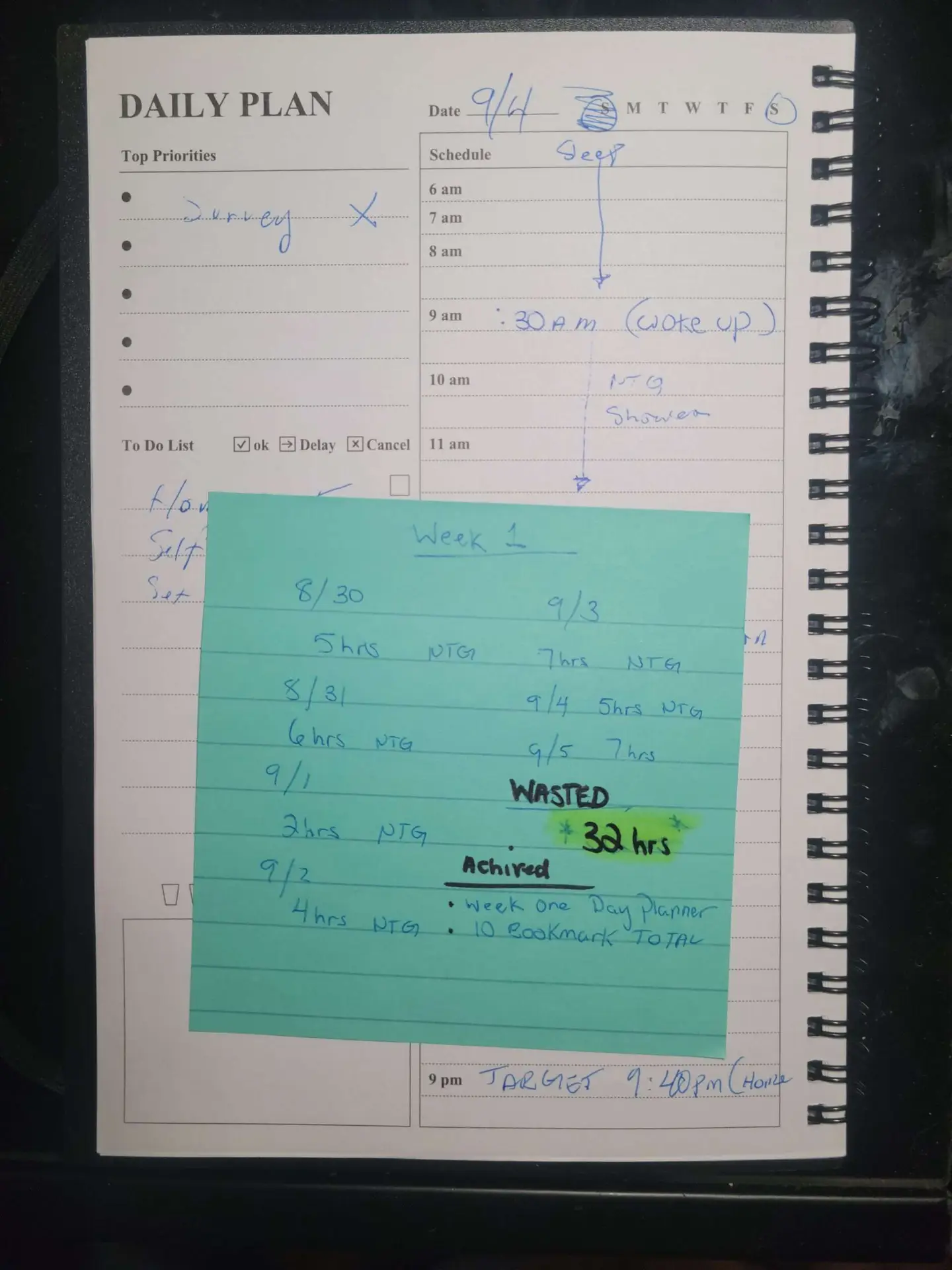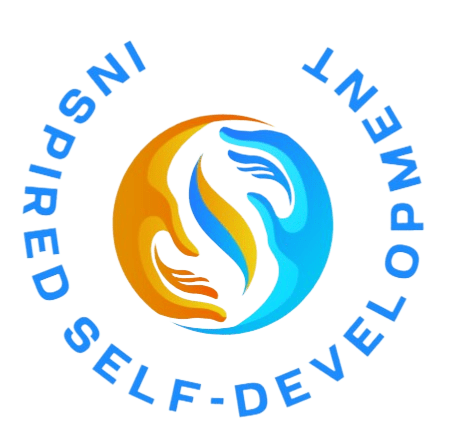A Guided Exploration with Inspired Self Development

- Jose Flores
Share Article:
Strategies for a More Fulfilling Life
In the rush of everyday life, where time slips away without us noticing, getting a grip on time management becomes crucial. Picture a day where things fall into place smoothly, goals are met effortlessly, and there’s even extra time for the things you enjoy – that’s the dream. Join me on this journey where we’ve already talked about self-development, paradigms, and habits. We’ve covered the basics in previous posts, helping us kickstart this transformative journey. Now, it’s time to focus on time management – I’ll share how I personally make the most of my time, giving you insights into becoming more effective and aware of how you spend every moment. So, get ready as we navigate the path to unlock the full potential of our time.

The Value Of Time
Time plays a unique role, distinct from any other resource. It is the ultimate non-renewable asset—once a moment passes, it is gone forever. This irrevocable nature imparts a profound value to time, shaping the narrative of our lives. Understanding and appreciating this finite resource allows us to harness its potential. In this section, we’ll reflect on the essence of time, contemplating its significance and the impact it has on the choices we make, the goals we pursue, and the legacies we leave behind.
In our busy lives, with all the deadlines, responsibilities, and distractions, we often forget just how important time is. Time is unlike money or possessions – you can’t save it up or get it back once it’s gone. It’s the most precious thing we have, more valuable than anything else.
Think of time as a sculptor that shapes our lives. It’s not just the ticking clock; it’s what influences our choices, builds relationships, and creates our personal story. Understanding the value of time means realizing it’s everywhere in our lives.
In a world that often focuses on money, success, and things, seeing the value of time becomes a deep thought. It’s knowing that time is the basis for all our achievements. Every goal, dream, or plan needs time. When we get this, our perspective changes, and we start taking care of our most important resource.
Life doesn’t have a restart button like a video game. The moments we spend on our goals, with our friends and family, and on personal growth are limited. Realizing the value of time is an invitation to live with purpose, making choices that match our values and dreams.
Knowing the value of time helps us prioritize, enjoy the present, and invest in a future that represents who we are. It’s a reminder that what we do now builds the legacy we leave behind. The value of time isn’t just a big idea; it’s a guide pushing us to use each moment wisely. By doing that, we not only make our lives better but also make a positive impact on the lives of those around us.
Common Time Management Challenges
One of the primary adversaries in the time management game is the procrastination monster. It lurks in the shadows, tempting us to delay tasks and postpone important activities. Imagine having a mission to complete, but the procrastination monster whispers seductively, leading you astray. Overcoming this foe requires self-awareness and the courage to face tasks head-on.
Inadequate planning stands as another formidable opponent. Embarking on a quest without a map or a plan – chaos ensues. Similarly, when we fail to plan our days effectively, time slips through our fingers, leaving us overwhelmed and disoriented. The challenge lies in mastering the art of prioritization and creating a roadmap for our tasks.
Distractions, the stealthy adversaries in our time management journey, divert our focus and derail our progress. In the digital age, the constant buzz of notifications and the allure of social media can lure us away from our quests. Overcoming this challenge necessitates discipline and the ability to create focused, distraction-free zones.
Another common nemesis is the inability to say ‘no.’ Picture a game where you accept every side quest without considering your primary mission – chaos ensues. Similarly, in life, saying ‘yes’ to every commitment leaves us stretched thin, compromising our ability to manage time effectively.
In the quest for time mastery, understanding and overcoming these challenges is crucial. It’s about recognizing the procrastination monsters, planning our quests wisely, navigating distractions, and mastering the art of saying ‘no.’ As we level up our time management skills, each challenge becomes an opportunity for growth and achievement. The journey towards efficient time management is a game worth playing, with triumphs awaiting those who dare to conquer these common foes.
Personal Time Management Practices
Alright, let’s talk about how to kick things off on your journey to better time management. I’ve got some personal experience to share because, believe me, I used to be pretty bad at managing my time.

Here's the trick that really worked for me: I started keeping a daily journal of what I did every hour for six months. At the end of each week, I'd look at my notes and see how much time I'd wasted. It was a bit eye-opening, to be honest.

In the first week, I realized I had wasted a whopping 32 hours – basically a day and a half doing nothing useful. It hit me hard, but here's the cool part: I used that info to start cutting down on wasted time each week. It wasn't about cutting everything out; it was about making better choices with my time.
Becoming someone who gets a lot done took practice. At first, it was a bit tough, but by sticking to tracking and adjusting, it became a habit. Just like we talked about with habits taking a few weeks to form, this became natural.
Think about it – those 32 hours could be put to so much better use, like spending quality time with family, earning extra cash, working on personal projects, or just becoming a better version of yourself. It’s a journey that’s totally worth it, and it all begins with being aware of your time and deciding to waste less every day.
Time is a finite resource, and managing it effectively is crucial for personal and professional success. In today’s fast-paced world, the ability to prioritize tasks, set goals, and stay organized is more important than ever. Fortunately, there are several practical strategies and habits that individuals can adopt to enhance their time management skills and lead a more productive life.
Set Clear Goals: Before diving into daily tasks, take the time to establish clear, achievable goals. Whether short-term or long-term, having a roadmap provides direction and motivation. Break down larger goals into smaller, more manageable tasks, making them less overwhelming and easier to tackle.
Prioritize Tasks: Not all tasks are created equal. Identify the most critical and time-sensitive activities and prioritize them accordingly. The Eisenhower Matrix, which categorizes tasks into urgent/important, important/not urgent, urgent/not important, and neither urgent nor important, can be a valuable tool in determining priorities.
Create a To-Do List: Develop a daily or weekly to-do list to outline tasks and deadlines. A well-organized list helps prevent forgetting important items and provides a visual representation of what needs to be accomplished. Update the list regularly, crossing off completed tasks and adjusting priorities as needed.
Eliminate Distractions: Identify and minimize distractions that can derail productivity. This may involve turning off social media notifications, creating a designated workspace, or using tools like website blockers during focused work periods. By removing unnecessary interruptions, you can maximize concentration.
Learn to Say “No”: It’s important to recognize one’s limits and avoid overcommitting. Politely declining additional responsibilities when already stretched thin allows for a more realistic and manageable workload. Saying “no” is a skill that helps protect your time and energy.
Utilize Time Management Tools: Embrace technology to aid in time management. Calendar apps, task management tools, and productivity apps can help streamline organization and provide reminders for upcoming deadlines. Find tools that align with your preferences and integrate them into your daily routine.
Batch Similar Tasks: Group similar tasks together and tackle them during designated time blocks. This approach minimizes context switching, allowing for increased efficiency. For example, answering emails, making phone calls, or completing similar administrative tasks can be done in batches.
Regular Breaks and Rest: Avoid burnout by incorporating regular breaks into your schedule. Short breaks can refresh your mind and improve overall productivity. Additionally, ensure you get enough sleep and maintain a healthy work-life balance to sustain consistent performance.
Reflect and Adapt: Periodically review your time management strategies to identify what’s working and what needs adjustment. Reflect on your accomplishments and areas for improvement, and be willing to adapt your approach as circumstances change.
Benefits of Effective Time Management
The ability to allocate time wisely and prioritize tasks can significantly impact various aspects of life, from personal well-being to professional achievements. Let’s explore some of the profound benefits that come with embracing and implementing effective time management practices.
Increased Productivity: One of the most immediate and noticeable benefits of effective time management is heightened productivity. When tasks are organized and prioritized, individuals can accomplish more in less time. This efficiency not only enhances output but also allows for a greater sense of accomplishment.
Reduced Stress Levels: Proper time management helps to alleviate the stress associated with overwhelming workloads and looming deadlines. By breaking down tasks into manageable chunks and planning ahead, individuals can approach challenges with a clear mind, reducing the negative impact of stress on both mental and physical well-being.
Enhanced Focus and Concentration: Time management encourages focused work by minimizing distractions and interruptions. By allocating specific time blocks for tasks, individuals can immerse themselves fully in the work at hand, leading to higher-quality results and a more rewarding work experience.
Improved Decision-Making: When time is managed effectively, individuals have the opportunity to reflect on their goals and priorities. This reflection fosters better decision-making as individuals can weigh the importance and urgency of different tasks, making informed choices that align with their overall objectives.
Achievement of Goals: Time management is instrumental in goal setting and achievement. Breaking down larger goals into smaller, actionable tasks makes them more achievable. Regularly accomplishing these smaller tasks builds momentum and propels individuals towards the successful attainment of their overarching objectives.
Enhanced Work-Life Balance: Effective time management extends beyond the professional realm; it also contributes to a healthier work-life balance. Allocating time for personal activities, hobbies, and relaxation ensures a well-rounded lifestyle, promoting mental and emotional well-being.
Increased Opportunities for Learning and Growth: Time management allows individuals to allocate time for continuous learning and skill development. Whether through professional development courses, reading, or other educational pursuits, effective time management opens doors to new opportunities and personal growth.
Builds Accountability and Responsibility: By managing time effectively, individuals cultivate a sense of accountability for their actions and responsibilities. Meeting deadlines and fulfilling commitments fosters a positive reputation both in the workplace and personal relationships, establishing trust and reliability.
Enhanced Quality of Work: When time is managed well, individuals can dedicate the necessary time and attention to each task, resulting in higher-quality output. This not only improves individual performance but also contributes to a positive and efficient working environment.
Time for Reflection and Innovation: Effective time management allows individuals the luxury of time for reflection and creative thinking. This promotes innovation, problem-solving, and the generation of new ideas, which are essential for personal and professional advancement.
Goal Setting and Prioritization
Setting goals and establishing priorities are fundamental elements of personal and professional success. Whether you’re aiming for personal development, career advancement, or business growth, a clear roadmap can significantly increase your chances of success. In this article, we’ll explore the importance of goal setting and prioritization, along with practical strategies to help you achieve your objectives.
The Power of Goal Setting:
Clarity and Focus: Defining clear and specific goals provides you with a sense of direction and purpose. When your objectives are well-defined, it becomes easier to focus your energy and efforts on what truly matters, avoiding distractions and unnecessary detours.
Motivation and Commitment: Goals act as motivators, giving you a reason to push through challenges and setbacks. They create a sense of commitment, encouraging you to stay dedicated to your aspirations even when faced with obstacles.
Measurable Progress: Setting measurable goals allows you to track your progress. By breaking down larger objectives into smaller, manageable tasks, you can celebrate incremental achievements, reinforcing your commitment and providing a sense of accomplishment.
Prioritization as a Key to Success:
Evaluating Importance and Urgency: Not all goals or tasks are created equal. The Eisenhower Matrix, a popular tool for prioritization, categorizes activities based on their importance and urgency. By differentiating between what is urgent and what is truly important, you can allocate your time and resources more effectively.
Time Management: Prioritization is closely linked to effective time management. By identifying high-priority tasks, you can allocate your time efficiently, ensuring that crucial activities are addressed before less critical ones. This prevents the feeling of being overwhelmed and helps maintain a sense of control.
Resource Optimization: Prioritizing goals enables you to optimize resources, such as time, money, and effort. By focusing on high-impact activities first, you can achieve more with the same resources, increasing your overall efficiency and effectiveness.
Strategies for Effective Goal Setting and Prioritization:
SMART Goals: Utilize the SMART criteria (Specific, Measurable, Achievable, Relevant, Time-bound) when setting goals. This framework ensures that your objectives are well-defined and attainable, setting the stage for success.
Breakdown Complex Goals: Large goals can be daunting. Break them down into smaller, more manageable tasks. This not only makes the overall goal seem more achievable but also allows for better prioritization of tasks.
Regular Review and Adjustment: Goals and priorities may need to be adjusted based on changing circumstances or new information. Regularly review your objectives, assess your progress, and be willing to adapt your plans accordingly.
goal setting and prioritization are indispensable tools. They provide a roadmap, keep you focused, and enable you to make the most of your resources. By adopting effective strategies and staying committed to your objectives, you can turn your aspirations into tangible achievements, propelling yourself towards personal and professional fulfillment.
Conquering Procrastination: A Roadmap to Productivity
Procrastination is a common hurdle that many individuals face in their daily lives, hindering productivity and delaying personal and professional growth. Overcoming this tendency requires a combination of self-awareness, effective strategies, and a commitment to change. Let’s explore some practical steps to conquer procrastination.
Self-Reflection: Understanding the root causes of procrastination is the first step toward overcoming it. Take a moment to reflect on your habits and identify the underlying reasons for delaying tasks. Whether it’s fear of failure, lack of motivation, or uncertainty, acknowledging these factors is crucial for effective change.
Set Clear Goals: Establishing clear, specific goals provides a roadmap for your efforts. Break down larger objectives into smaller, more manageable tasks, making them less daunting. Clarity in your goals creates a sense of purpose and urgency, motivating you to tackle tasks more promptly.
Create a Realistic Schedule: Develop a realistic and achievable schedule that allows for a balance between work and relaxation. Avoid overwhelming yourself with an unrealistic to-do list, as this can lead to procrastination. A well-structured schedule helps create a routine that minimizes the temptation to delay tasks.
Prioritize Tasks: Not all tasks are created equal. Identify the most important and time-sensitive activities, and prioritize them accordingly. The Eisenhower Matrix, categorizing tasks into urgent/important, important/not urgent, urgent/not important, and neither urgent nor important, can be a helpful tool in determining priorities.
Break Tasks Into Smaller Steps: Large tasks can be intimidating, contributing to procrastination. Break them down into smaller, more manageable steps. This not only makes the task less overwhelming but also allows for a sense of accomplishment as each step is completed.
Set Deadlines: Establishing deadlines, even for tasks without external time constraints, creates a sense of urgency. Self-imposed deadlines provide structure and help combat the tendency to put things off indefinitely.
Use the Two-Minute Rule: If a task takes less than two minutes to complete, tackle it immediately. This simple rule helps clear the small, quick tasks that can accumulate and contribute to a sense of overwhelm.
Eliminate Distractions: Identify and minimize potential distractions. Turn off unnecessary notifications, create a dedicated workspace, and establish boundaries to limit interruptions. A focused environment facilitates concentration and reduces the likelihood of procrastination.
Reward Yourself: Implement a reward system for completing tasks. After accomplishing a significant milestone, treat yourself to a small break or an enjoyable activity. Positive reinforcement can reinforce the habit of tackling tasks promptly.
Seek Accountability: Share your goals with a friend, colleague, or mentor who can provide support and hold you accountable. Having someone to check in on your progress can be a powerful motivator to stay on track and overcome procrastination.
Rewards of Effective Time Management
Effective time management isn’t just a skill; it’s a gateway to unlocking a myriad of rewards and achieving unparalleled success. Here are the profound benefits that come from mastering the art of time management.
Increased Productivity: One of the immediate rewards of efficient time management is a significant boost in productivity. When you organize your tasks and allocate time wisely, you can accomplish more in less time. This heightened productivity not only enhances your work output but also allows you to tackle more ambitious projects.
Reduced Stress and Anxiety: Proper time management reduces the likelihood of feeling overwhelmed. By breaking down tasks into manageable chunks and prioritizing them, you can approach your responsibilities with a calm and composed mindset. This proactive approach minimizes stress and anxiety, fostering a healthier work-life balance.
Improved Decision-Making: When time is managed effectively, decision-making becomes more deliberate and thoughtful. You have the space to consider various options, weigh their pros and cons, and make informed choices. This leads to better outcomes and a sense of control over your circumstances.
Enhanced Quality of Work: Rushed work often results in subpar quality. By allocating adequate time to each task, you can focus on delivering high-quality results. This commitment to excellence not only improves the caliber of your work but also establishes your reputation as a reliable and proficient professional.
Opportunities for Personal Development: Efficient time management frees up valuable time for personal development. Whether it’s acquiring new skills, pursuing hobbies, or investing in self-improvement, you have the opportunity to broaden your knowledge and enrich your life outside of work.
Increased Goal Attainment: Time management is closely tied to goal setting. When you allocate time and resources strategically, you increase your chances of reaching your objectives. Each task completed within its designated timeframe brings you closer to your goals, fostering a sense of achievement and progress.
Enhanced Work-Life Balance: Successful time management allows you to strike a healthy balance between work and personal life. By setting boundaries and prioritizing tasks, you create the space for relaxation, family, and other meaningful pursuits. This balance contributes to overall well-being and satisfaction.
Professional Recognition and Advancement: Consistently meeting deadlines and delivering high-quality work doesn’t go unnoticed. Effective time management can lead to professional recognition, advancement, and increased opportunities within your career. Employers value individuals who can manage their time efficiently and deliver results.
It becomes abundantly clear that time is more than just a ticking clock; it’s a precious currency that, when invested wisely, yields remarkable dividends. We’ve navigated through the intrinsic value of time, common challenges many face in managing it, and personal practices that can turn the tables on wasted minutes.
From the strategic art of goal setting and prioritization to the constant battle against procrastination, we’ve uncovered the rewards of effective time management. The journey from recognizing the importance of time to reaping the benefits is a transformative one, requiring commitment, resilience, and a conscious effort to conquer the obstacles that stand in the way.
The benefits of mastering time management extend far beyond mere productivity. They encompass a holistic improvement in the quality of life—less stress, enhanced decision-making, increased personal development opportunities, and a heightened sense of accomplishment. Through the disciplined allocation of time, we not only meet deadlines but also shape a life that aligns with our goals and aspirations.
As we move forward, let us carry with us the lessons learned about the impact of time and the power of effective management. Time, once spent, cannot be reclaimed, but with the right strategies, we can mold our days into stepping stones toward success and fulfillment. So, armed with the knowledge of personal practices, goal setting, prioritization, and the rewards that await, where every tick of the clock brings us closer to our aspirations and the life we envision. Time is not just a constraint; it is our greatest ally, waiting to be harnessed for a future defined by achievement and contentment.
Welcome

Hey there! I’m Jose Flores, your guide on this journey of self-discovery and inspired living. As a passionate advocate for personal development, I believe that every small step we take leads to profound transformation. Join me as we navigate the twists and turns of life, uncovering the secrets to self-mastery, mindfulness, and positive growth




